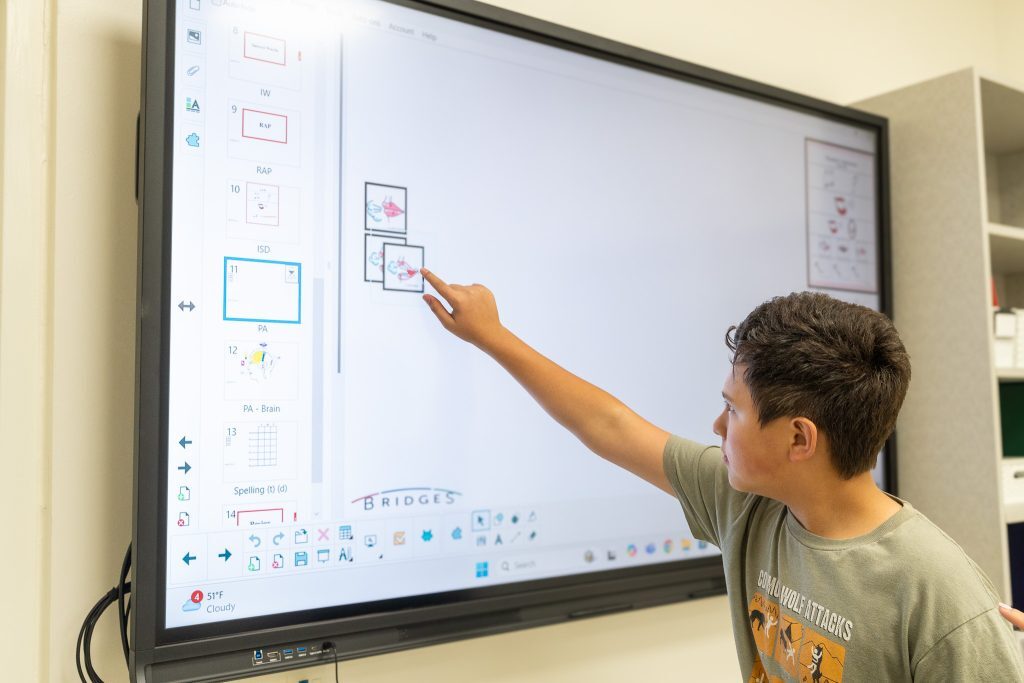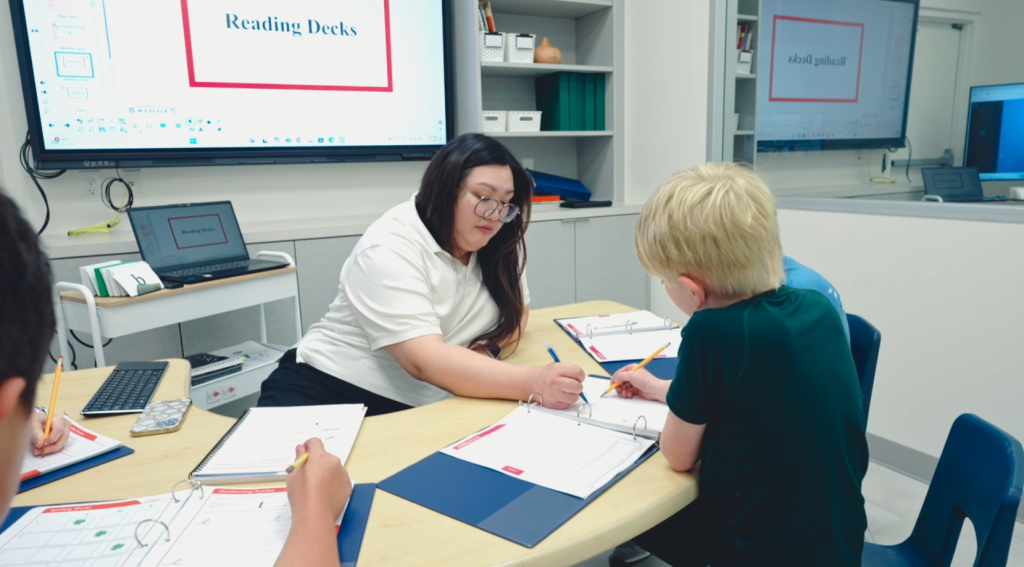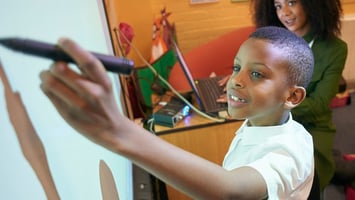Is your school struggling with poor student engagement and performance? Before blaming your...
Transforming Education with Interactive Whiteboards at the Dyslexia School of Houston
Interactive Whiteboard Enhancing Learning at Dyslexia School
In the fall of 2020, amid the global pandemic, Tammy Spencer, founder and CEO of the Dyslexia School of Houston and its nonprofit arm, the Code Academy, embarked on a mission to address a critical gap in education for children with dyslexia. What started as a small initiative in her garage apartment has evolved into a thriving organization dedicated to helping children with learning differences.
The Journey to Fill a Gap
“Dyslexia affects one in every five of us,” Spencer explains. “Globally, we’re looking at 20% of the population struggling with the correlation between letters and sounds. It’s not that these children can’t learn; they simply need to be taught in a way that aligns with how they learn.” Recognizing this unmet need, Spencer began her work by offering face-to-face instruction in her garage apartment during the pandemic, quickly realizing the immense demand for tailored education.
By spring 2021, the Code Academy had outgrown its initial space and moved into a storefront, serving students before and after school hours. The summer of 2021 marked the launch of their first literacy camp, a program so successful it resulted in a waiting list. “We knew we were on to something,” says Spencer. “There were so many gaps in learning from the COVID years, and we knew we could make a difference.”

The Role of Technology in Education
As the Dyslexia School of Houston expanded, so did the need for innovative teaching tools — like smartboards or interactive whiteboards. “The interactive smart boards allow us to implement evidence-based curricula effectively,” Spencer shares. “They enable us to teach explicitly and give children the skills they need to succeed in their school setting.”
Interactive whiteboards provide several unique benefits for students with dyslexia, like allowing multisensory learning, where students can engage visually, auditorily, and kinesthetically (physically) with the materials. “The students love interacting directly with the board, manipulating words and sounds in real-time,” Spencer says. “It gives them confidence and helps them see their progress as it’s happening.” The boards also support flexible instruction, enabling teachers to adapt lessons to each student’s individual learning pace and style.
The technology has been particularly beneficial in supporting the school’s collaboration with the Scottish Rite Hospital for Children in Dallas. The hospital’s Luke Waites Center for Dyslexia and Learning Disorders provides the curriculum, which integrates seamlessly with the interactive displays. “Our teachers can present lessons dynamically and manipulate components of the curriculum in real-time, making it much easier for the kids to learn,” Spencer adds. The features also make abstract concepts more tangible, such as breaking down complex spelling patterns or practicing phenome blending.
Beyond student learning, the whiteboards facilitate teacher collaboration and professional development. Teachers can easily share resources, annotate lessons, and review student performance data, all within a single platform. “It’s not just about teaching; it’s about creating an optimal learning environment for both students and educators,” Spencer notes.

Building Community Support in Houston and Beyond
Securing the technology required to build their vision wasn’t easy. Spencer recounts reaching out to DOCUmation, a technology solutions company, with an urgent plea for help. “I wasn’t in a position to purchase the equipment outright, so I asked if I could borrow it. Within half an hour, I got a call back saying, ‘We’re going to take care of you,’” she recalls. “They’ve been a huge part of our success since then.”
Since then, DOCUmation has become a key partner, donating smart boards, wireless equipment, and other technology essentials. Their support culminated in a full technology donation during Dyslexia Awareness Month in October 2024. “Their generosity means we can allocate more resources directly to the students who need them most,” Spencer explains. “It’s about making a greater impact in Houston.”
Expanding Impact
Today, the Dyslexia School of Houston operates from a state-of-the-art facility in the Museum District and is preparing to launch its first therapist training course in the summer of 2025. “We’ve served over 250 students in just three years,” Spencer proudly states. “Our next step is to train more educators and expand our reach. Every child deserves the opportunity to succeed.”
Spencer’s vision extends beyond the school’s walls. “How do we scale this out throughout Houston to reach the children who can’t come to our center?” she asks. “It’s about collaboration, breaking down silos, and working together to make a greater impact.”
A Call to Action
For those inspired by the Dyslexia School of Houston’s work, Spencer invites involvement. “We always appreciate interest in our mission. Whether through partnerships, donations, or collaboration, there’s a place for everyone to help make Houston better.”
Hands-on technology has proven to be more than just a tool for the Dyslexia School of Houston; its helping students unlock their potential and thrive in new ways. “These kids are brilliant,” Spencer emphasizes. “They just need to be taught the way they learn.”
To learn more about Dyslexia School of Houston, visit https://www.dyslexiahouston.org/.
DOCUmation is a family-owned technology solutions provider specializing in IT, print, and software-managed services across Texas. With locally-led offices designed to minimize red tape, our centrally located office in Arlington, Texas, is ready to assist in updating and maintaining your business operations and IT infrastructure.
%20(2).png?width=50&name=SA%20Logo%20Squares%20(20%20x%2020%20in)%20(2).png)






.png?width=50&name=Sept%20Social%20(LinkedIn%20Post).png)

